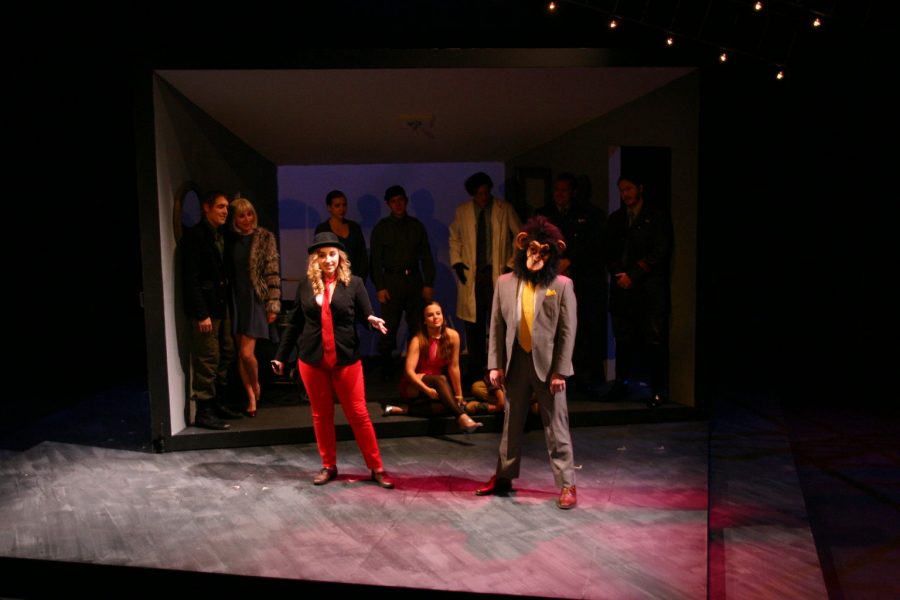‘Woyzeck’ to test audience with wild experiments this week
November 19, 2014
The mind of a lowly, schizophrenic soldier will haunt the Lupin Theater this week. Through interactive live feed video, untraditional directing techniques and border-line epileptic lighting, the Tulane Department of Theatre and Dance’s performance of “Woyzeck” promises to shock and entertain its audiences. Running nightly shows since Tuesday, “Woyzeck” will continue to run at 8 p.m. Thursday through Saturday. Two special 2 p.m. matinee performances will also occur on Saturday and Sunday. Student tickets cost $8.
The 19th century work is one of the most influential and heavily performed German plays to this day.
“It was written by this German playwright, Georg Büchner … and he died before it was finished,” Becca Greaves said. “So it’s an unfinished play. Why directors really love doing it is because it’s up for adaptation. You can put the scenes in whatever order you want.”
Greaves, a senior English and theatre major, plays the female lead, Marie, the mother of the title character’s child.
“It’s about this schizophrenic soldier who is being experimented on by this doctor and he can only eat peas. He has only been eating peas for three months,” Greaves said. “He has a baby out of wedlock with Marie, that’s my character. He basically is doing everything he can to provide for her, but he’s crazy. And going crazier and crazier, especially with these experiments.”
Theatre professor Dmitry Troyanovsky directs the feature. Hailing from Russia, Troyanovsky worked at the Moscow Art Theatre.
“I’ve never worked with him before,” Greaves said. “It’s different from anything I’ve done because he really wants the actor to find the character and the relationships themselves. He really does not give that much direction in that way.”
The director relied on organic blocking through improvisation. He would give the actors suggestions on how to get into character, but required they inhabit the role completely. The resulting hour-and-15-minute production explores the deepest, darkest corners of human nature.
“It’s really dark and our director took it to probably the darkest place it could go,” Greaves said.
Embracing the modern technology of the theatre industry, Trovanovsky utilizes live video feeds throughout the show to truly encapsulate the feelings of the schizophrenic condition. Duncan Becker, a senior theatre performance major, provides the technical tools necessary to pull off the projections.
“There are eight, maybe six, surveillance cameras all around the stage,” Greaves said. “There’s live video feed of things that are happening on stage, while it’s happening. We have this box that looks like a little room and the projections are seen on the box.”
The department’s revolutionary approach to the classic play should not be missed by those seeking a thrill, but may prove too much to handle for the faint of heart.
“It’s an all-encompassing visual experience,” Greaves said. “I keep saying I want to be in the audience to see it because there are projections and live video. It’s just an interesting incorporation of all these things. It’s really dark, so I tell people to not expect to have this happy go-lucky time, but I think it’s very thought-provoking.”










Leave a Comment